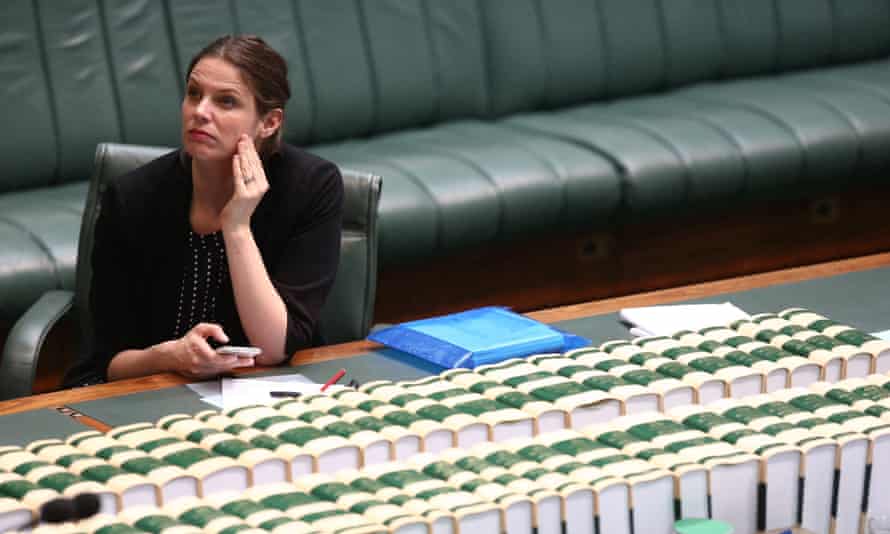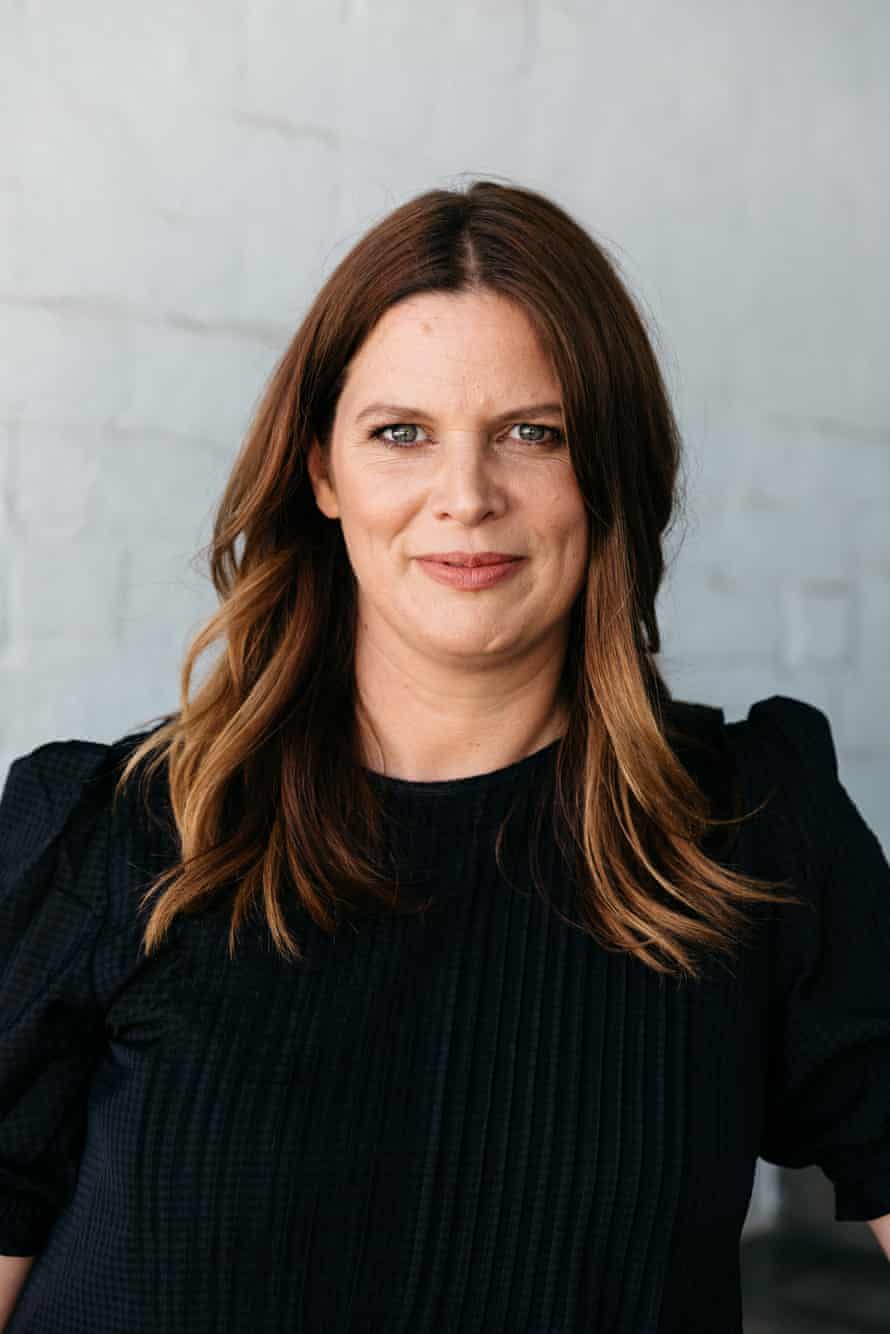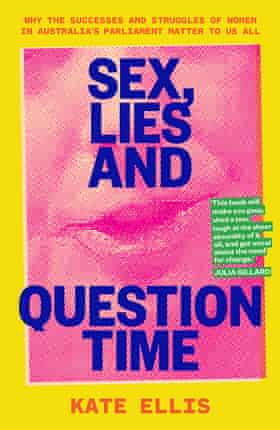Extract from The Guardian
It’s
beyond infuriating reading what female politicians contend with. Yet
the former Labor MP channels this anger to a place of superhuman
positivity.
‘There I was, an Australian federal minister, pleading on the phone to an editor ... “Honestly, I promise. I’ve never even kissed him.” How pathetic.’ Kate Ellis in parliament in 2016.
Last modified on Sat 27 Mar 2021 06.02 AEDT
“I had only been a politician for a few weeks when I was approached in a Canberra bar and told, ‘The only thing anyone really wants to know about you, Kate, is how many blokes you had to fuck to get into this parliament.’”
So goes the arresting opening line of a chapter in former Labor MP Kate Ellis’s book, arriving in bookstores this weekend with the sort of timing publicists dream of – a compendium of the shameful treatment of women in parliament released at a time when we can speak of nothing but.
The question was posed to the then 27-year-old Ellis just after she arrived in Canberra in 2004 by a man who was the at the time a Liberal staffer, but who then went on to become a senior MP. He interrupted her mid-conversation at the pub. She writes: “I had won a marginal seat in an election when my party was largely annihilated. But, sure, if that’s how he thinks elections work. I had never spoken to him before and subsequently tried to limit our interactions over the next decade.”
It was, Ellis writes, “the kind of run-of-the-mill sleaze and innuendo which is so common it is almost unremarkable in the culture of federal politics”.
With the wild tide of revelations that have been relentlessly coming at us like a set of breakers in the last few weeks, all this is unremarkable no more. And the fact that this exchange had come to be seen as “run-of-the-mill” is cause for a reckoning within the pages of Sex, Lies and Question Time, Ellis’s “insider account” of her 15 years in parliament.
“I often wonder, if we had been more forthright in calling the culture out earlier, would the appalling misogynistic attacks on Julia Gillard still have occurred?” Ellis asks. “Could we have stopped things before they exploded so dramatically? Of course we will never know – but we should do all we can to stop this behaviour now.”

Kate Ellis interviews former fellow MPs who are frank and generous – Julia Gillard, Tanya Plibersek, Penny Wong, Linda Burney, Julie Bishop, Sussan Ley, Sarah Hanson-Young and Pauline Hanson. Photograph: Supplied by Hardie Grant Publishing
Sex, Lies and Question Time surveys some familiar ground through the big picture gender inequality lens – looking back at the history of women in politics, the ongoing focus on female appearance and family status, the online abuse, the public slut-shaming that saw court cases upend the lives of Sarah Hanson-Young and Emma Husar.
Ellis interviews a number of her former fellow parliamentarians who are frank and generous – Julia Gillard, Tanya Plibersek, Penny Wong, Linda Burney, Julie Bishop, Sussan Ley, Sarah Hanson-Young, Pauline Hanson – and there are stories that could be from any number of workplaces: of men talking over women in meetings, of men repeating the ideas that female colleagues came up with and being congratulated for them, deals done and influence piqued in the pub after hours or at networking golf games, the double standards that see men characterised as fiery and passionate and women framed as irrational.
There’s the much-discussed issue of the policing of and talk about image – we know, for example, more than we ever wanted to know about the fit of Julia Gillard’s jackets. But there are other incremental insults: Ellis being told by a Labor party elder to go to a particular hairdresser in Adelaide that catered to conservative older ladies to have her long hair cut short, and that she should wear glasses despite having perfect vision. Julie Bishop tells Ellis that, on becoming aged care minister, she was told to change her look to suit the portfolio, “less Armani, more cardigans” (“I laughed until I realised they were serious”).
But it is the accretion of individual experiences of a sexual nature shared by Ellis and other women that shock … if it is at all possible to be further shocked in a week of politics that focused on solo sex acts performed over a female MP’s desk.
Apart from the common experience of “being hit on”, Ellis writes about the weaponising of sexual gossip within the halls of parliament “specifically designed to destabilise politicians”. It’s not, she says, exclusively aimed at women, but when the sexual gossip involves men, it’s often about same-sex encounters.
“Perhaps this demonstrates that sexism has a friend in homophobia in the parliament, and that sexual rumours are only really damaging to men if they involve other men.”
For Ellis, it started soon after her arrival in parliament: “… a rumour started that Labor Member for Watson Tony Burke and I were sleeping together. It was a rumour that would become widespread and persist on and off for most of the next decade. Years later when my husband told one of his mates that we were dating his mate responded, ‘Is she still having sex with Tony Burke though?’
“For what it’s worth, we never were.”
Rumours followed, she says, about alleged sexual liaisons with other MPs, ministers, countless staff members, and, when she was sport minister, sporting administrators. While writing her book after leaving parliament, she discovered even more rumours about her allegedly very busy sex life from the women she interviewed.
“Not that it matters, or is actually any of your business,” she writes, “but I had two long-term monogamous relationships that lasted my entire parliamentary career. Beyond that, I wasn’t sleeping with half of Australia’s politicians or Australia’s political staff members or Australia’s men – in fact, none of them at all. But none of this is really about facts.”
Indeed. There’s Sarah Hanson-Young being called into her mentor Bob Brown’s office – her boss, then still leader of the Greens, had to tell her a newspaper was about to print a story about her being busted having sex in the prayer room.
“They had gone to Bob for comment. And of course I’d never even put a foot in the prayer room. I don’t even fucking know where it is,” she tells Ellis, who also had apparently been caught having sex in the prayer room.
Hanson-Young was the subject of another rumour about her sleeping with journalist Tony Wright – “old enough to be my grandfather” – and says how the chilling effect of such rumours contribute to the feeling that you can’t, as a woman, go out for a drink with other politicians and journalists, “where the real conversations happen”.
There’s Amanda Rishworth, Labor MP for Kingston, having someone yell at her across the chamber of the House of Representatives: “We all know that you effed such and such.”
There’s Ellis’s unnamed former female colleague, promoted to a senior position after the 2007 election in conversation with two male colleagues inquiring how she got the promotion. It was, one of them says, “because she gives good blow jobs”.
There’s Pauline Hanson, talking to Ellis about the humiliation she suffered when in 2009 the Sunday Telegraph published semi-nude photographs from an R-rated photo shoot claiming they were of Hanson. Despite instant denials by Hanson that they were not of her, the untrue story remain published for six days and was amplified around the world.
There’s another particularly galling story from Ellis herself, dealing with finding out the News Corp Sunday papers were about to publish a story about her being involved in a “sordid love triangle”. She was, according to the story, sleeping with an adviser and so too was her chief of staff. The story went that the two women had put an ultimatum to the man to choose one of them and immediately end things with the other.
“If it’s not already completely clear,” she writes, “there was not a single element of truth in any of this. But I knew it didn’t matter. In that moment I believed with every ounce of my being that my credibility would never survive this story being printed … It would be career ending. I continue to believe that today.”

Photograph: Supplied by Hardie Grant Publishing
Ellis then finds herself in the situation of having staffers and colleagues trying to find a better story to give the papers so they would drop the untrue one about her. The paper agreed, “but only if I spoke directly to the editor to give him my personal assurance that there was no truth to this story.
“So there I was, an Australian federal minister, pleading on the phone to an editor I had never met or spoken to before, and I will always cringe as I remember the exact words I said: ‘Honestly, I promise. I’ve never even kissed him.’ How pathetic.”
The ultimate insult? The false “leak”, writes Ellis, came from her internal colleagues.
It’s exhausting, beyond infuriating, reading more and more about the extra layers of stress female politicians contend with. But in her book Ellis ultimately channels this anger beyond the “things must change” call to arms to a place of superhuman positivity – even as bad as things are, it’s still a great job, a privilege to serve the public.
As Tanya Plibersek bluntly summarises: “It’s utterly worth it. I would put up with ten times as much shit if I had to.”
Sex, Lies and Question Time, by Kate Ellis (Hardie Grant) is out Monday
No comments:
Post a Comment